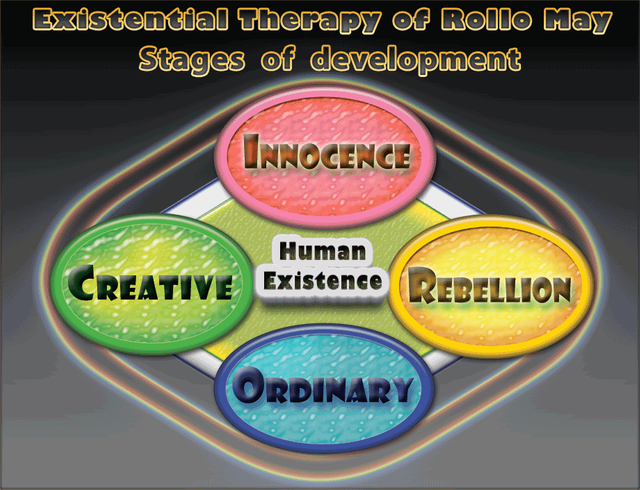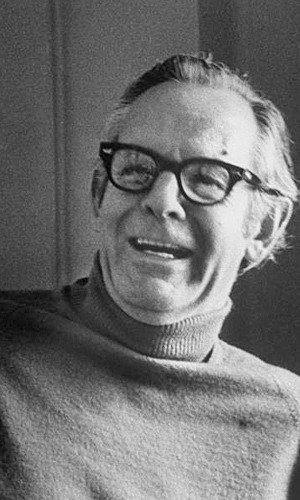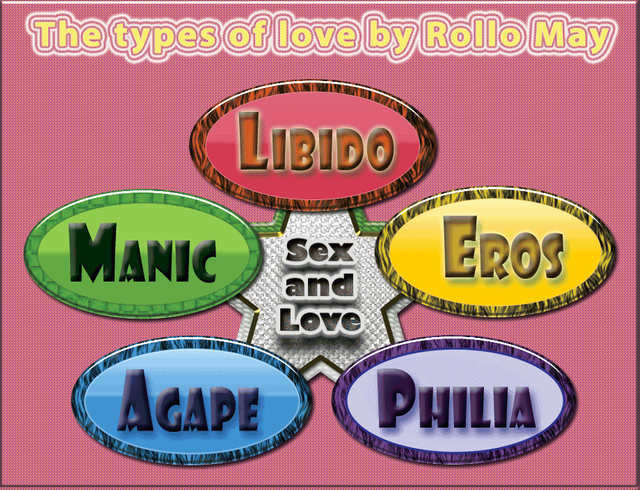Part 2 - The Short History of Existentialism: V - Humanistic Existentialists - Rollo May
The Dialectics of Liberation: Anarchism, Existentialism, and Decentralism.
Part 2 - The Short History of Existentialism: V - Humanistic Existentialists - Rollo May
"Unsolved Anguish leads to conformism, inaction, and depression." - charlie777pt
1 - Introduction
This post was to speak of two well-known humanists, Rollo May and Abraham Maslow, but I decided that I had to divide it into two articles because these authors were a part that I studied deeply in my university education and because they influenced many theories in social psychology, which is why they have to be studied separately so that readers can better understand their thoughts.
I'm going to start with a quote that should be the motto of Steemit and the blockchain communities:
"Communication leads to community, that is, to understanding, intimacy and mutual valuing."- Rollo May
People live for security-based in materialistic values and they lose life for it because to be wealthy is to be free to search for the Truth and freedom in the impossible, to turn it into a realizable utopia of our destiny.
Our inner transformation leads to autonomy and self-determination and this inside transformation contaminate the reality around us, with the same benign virus of the ones that search for a way out, but sure will frighten those that don't want to unmask their Selves and the morals dictated by a centralized society because they fear freedom, and will hate any messenger infected with that message.
“Many people suffer from the fear of finding oneself alone, and so they don't find themselves at all.” - Rollo May in Man's Search for Himself.
Rollo May had a different view about the Freud's psychosexual development stages,that for him was more focused on the major trending poles in stake on people's lives:
- The Innocence of the self-consciousness state of the pre-ego and will drive oriented by needs.
- The Rebellion of a free willing human being desire without the sense of the counterbalance of responsibility.
- The Ordinary adult ego consubstantiated by normalized conformism, to avoid the work of acquiring the knowledge of responsibility.
- The Creative real self-build adult in the existential stage free from the chains of egocentrism and ethnocentrism.
Rollo's view embeds a strong influence from existentialism, and these concurrent stages are playing in dialectic interaction and iteration, since childhood to the grown adult, during all our life.
"The opposite of courage in our society is not cowardice, it is conformity." - Rollo May
|
Rollo May was an existential therapist who was influenced by the American humanism of free expression and personal freedom, and who brought the understanding of European existentialism to the American public.
He was interested in reconciling existential psychology with other philosophies, especially Freud and theories for humanistic psychology, including his strong influence of Paul Tillich, which he expressed in his book The Courage to Be, The Courage to Create (1975), and along with Viktor Frankl he creates existentialist psychotherapy.
He always pinpointed Otto Rank (1884–1939) a member from the circle of Freud, as the inspiration for the existential therapy and really made a more profound analysis of the human dimensions of life than Abraham Maslow and incarnate the Erich Fromm' s existential ideals focused on self-expression and free will.
Rollo May had a background on Kierkegaard in the concept of Anxiety and isolation that was fed by his experience of tuberculosis in a sanatorium, where he had to deal with the Angst and fear of a deadly disease to conclude that anxiousness is the food of individual development and growth, the choice between the conformism or the courage to dignify our freedom and overcame the anxiety by fear in the face of obstacles of life.
"Anxiety is the dizziness of freedom" - Søren Kierkegaard
In his book Love and Will, he distinguishes some types of love acting as a whole, in human conducts about love and sex:
- The Libido, as a biological function to achieve sexual acts and release tensions.
- The Eros, looking for a more psychological and rewarding last-loving relationship including the desire to procreate.
- The Philia, as the intimacy of normal friendship of a non-sexual drive.
- The Agape is the recognition, honor, and love for our human fellows without materialistic interests.
- The Manic, is the storm of extreme floating emotional feelings, creating heaven and hell relationships at the same time.
He always pointed the sixties generation making the mistake of confusing "free sex", fed by the propaganda of sex commerce and pornography of the times, with free love because following our own pulsions and impulsions do not lead to freedom.
“Hate is not the opposite of love; apathy is.” - Rollo May
May also analyzed Guilt as the self-denial to explore our capacities, understand other's people's needs and that we are One in this world, to deal with our existence as a natural part of the Being and it is fed by unawareness of the world around us, potentiated by the modern rushing society.
We live in permanent Anxiety by the threats to our being and our life, and it is the vortex from where emanates all the force of inner growth as an essence of living.
He distinguished the normal anxiety from neurotic anxiety being the latter a consequence of the refusal to face the former, that diminishes personal freedom because neurotic anxiety creates disproportional mechanisms of defense and emotional reactions to the stimulus of the threats of the objective danger.
"Depression is the inability to construct a future."- Rollo May
So, this is the end of this long post dedicated to Rollo May, to finish the subject of humanistic existentialism with the next article about Abraham Maslow.
Till there, act in reality by knowing yourself, as an alchemy to change your Existence and see it projected in the world around you.
Photo source: Wikipedia
The Dialectics of Liberation: Anarchism, Existentialism and Decentralism.
Published Posts:
Introduction to the Dialectics of Liberation: Anarchism, Existentialism and Decentralism
I - Anarchism
- What is Anarchism?
- The History of Anarchism
- Part 1 - Pre-Anarchy - Social Revolution
- Anarchy: Revolution Against The State
- Anarchy Today
- Index and Conclusions of part 1 - Anarchy
II - Existentialism
- What is Existentialism ?
- Part 1 - Unplugged Introduction to Existentialism
- Part 2 - The Short History of Existentialism: I - Early Pre-existentialism
- Part 2 - The Short History of Existentialism: II - Pre-Existentialists
- Part 2 - The Short History of Existentialism: III - Phenomenology - Brentano to Husserl
- Part 2 - The Short History of Existentialism: III - Phenomenology - Jaspers to Sheller
- Part 2 - The Short History of Existentialism: IV - Humanistic Existentialists - Buber, Arendt, and Tillich
- Part 2 - The Short History of Existentialism: V - Humanistic Existentialists - Rollo May - This post
Next posts on the Series:
II - Existentialism(Cont.)
- What is Existentialism ? (Cont.)
- Part 2 - The Short History of Existentialism: V - Humanistic Existentialists - Abraham Maslow
- Part 2 - The Short History of Existentialism: VI - Post -Structuralism
- Part 3 - The Philosophy of Existentialism: I - The Meaning of Nonsense
- Part 4 - The Fear of Freedom of Erich Fromm
- The "Existentialists"
- Part 1 - The Players and the Times
- Part 2 - Jean Paul Sartre - the Man of The 20th Century
- Humanism and Existentialism
- Existentialism and Anarchism
- The Future : Posthumanism, transhumanism and inhumanism
III - Decentralism
- What is Decentralism?
- The Philosophy of Decentralism
- Blockchain and Decentralization
- Anarchism, Existentialism, and Decentralism
IV - Dialectic for Self-Liberation
- The Dialectics of Liberation Congress
- Psychedelics, Libertarian and artistical movements
- Psychoanalysis and Existentialism
- The Anti-psychiatry movement



Congratulations @charlie777pt! You have completed the following achievement on the Steem blockchain and have been rewarded with new badge(s) :
Click here to view your Board of Honor
If you no longer want to receive notifications, reply to this comment with the word
STOPDo not miss the last post from @steemitboard:
article is very great my friend,amazing philosophy @charlie777pt